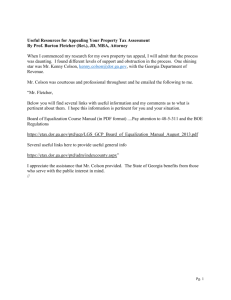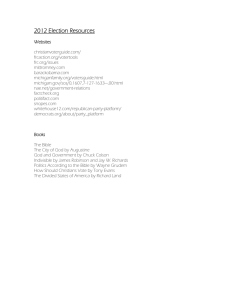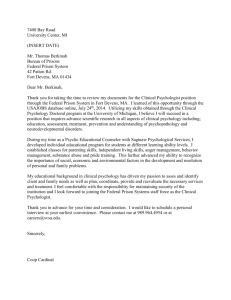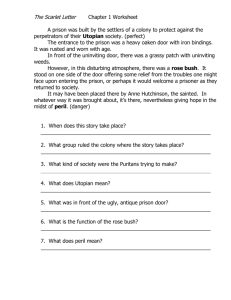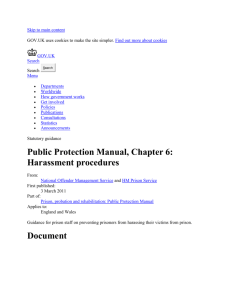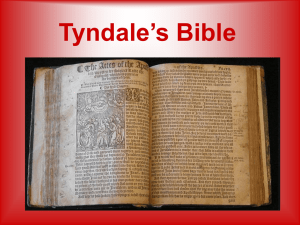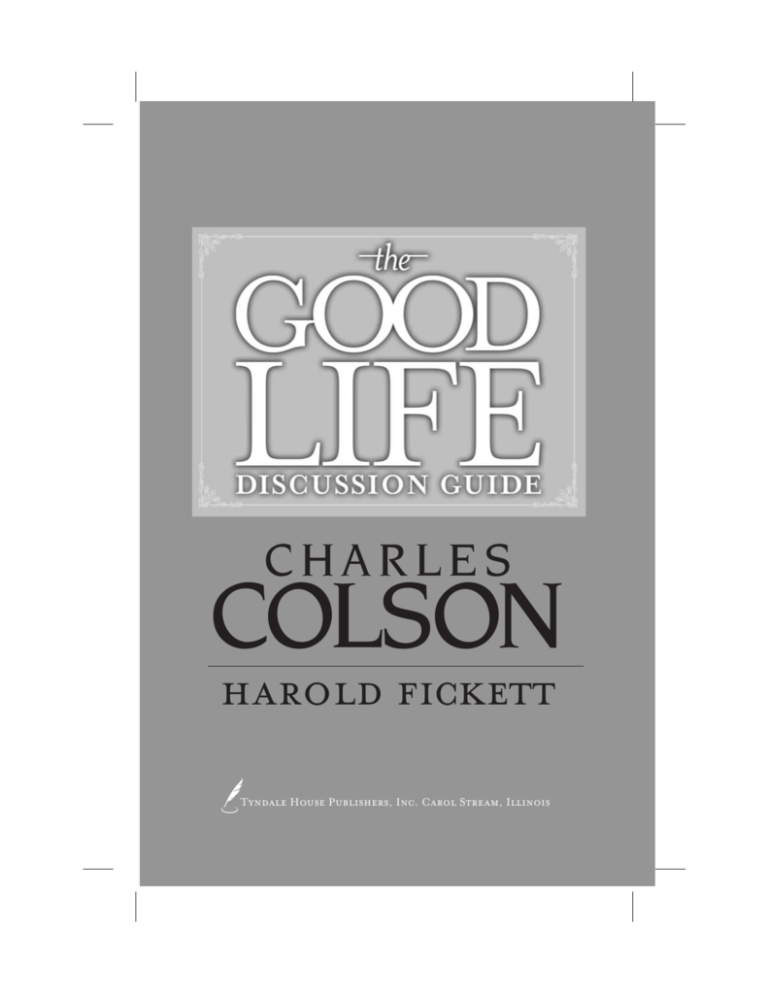
CHARLES
COLSON
harold fickett
Tyndale House Publishers, Inc. Carol Stream, Illinois
Visit Tyndale’s exciting Web site at www.tyndale.com
TYNDALE and Tyndale’s quill logo are registered trademarks of Tyndale House Publishers, Inc.
The Good Life Discussion Guide
Copyright © 2006 by Charles Colson. All rights reserved.
Charles Colson photo taken by Russ Busby. All rights reserved.
Harold Fickett photo courtesy of The Wichita Eagle.
Designed by Jessie McGrath
Edited by Lynn Vanderzalm
Unless otherwise indicated, all Scripture quotations are taken from the Holy Bible, New Living
Translation, copyright © 1996, 2004. Used by permission of Tyndale House Publishers, Inc., Carol
Stream, Illinois 60188. All rights reserved.
Scripture quotations marked NIV are taken from the Holy Bible, New International Version®. NIV®.
Copyright © 1973, 1978, 1984 by International Bible Society. Used by permission of Zondervan. All
rights reserved.
ISBN-13: 978-1-4143-1138-8
ISBN-10: 1-4143-1138-9
Printed in the United States of America
12 11 10 09 08 07 06
7 6 5 4 3 2 1
Contents
Introduction . . . . . . . . . . . . . . . . . . . . . . . . . . . . . . . . . . . . . vii
DISCUSSION GUIDE 1
Lesson 1:
Lesson 2:
Lesson 3:
Lesson 4:
Lesson 5:
Lesson 6:
. . . . . . . . . . 3
. . . . 13
. . . . . . . . . . 23
. . . . . . . . . . . 33
. . . . . . . . . . . . . . . 43
. . . . . . . . . 53
DISCUSSION GUIDE 2
Lesson 7:
Lesson 8:
Lesson 9:
Lesson 10:
Lesson 11:
Lesson 12:
. . . . . . . . . . . . . 67
. . . . . . . . 77
. . . . . . . . . . 87
. . . . . 97
. . . . . . . . . . . . 107
. . . . . . . . . . . . 117
Notes . . . . . . . . . . . . . . . . . . . . . . . . . . . . . . . . . . . . . . . 129
About the Authors . . . . . . . . . . . . . . . . . . . . . . . . . . . . . . . . 131
Introduction
I invite you to join a conversation about the good life, about how the
world really works, and about what we need to live well. All that is required is that you bring your mind, heart, and life experiences with you.
The Good Life and this discussion guide are for anyone who wants to
discover the greater truths about life. We’ll be exploring the deep questions that weave in and out of our lives: What makes life worth living?
Where did I come from? Why am I here? What gives my life meaning?
How we answer these questions will directly affect how we will live and
how we will die and whether our lives will count for something.
Pascal once said there are only two kinds of people: seekers and
nonseekers. This study is for seekers of any kind—young, old, artistic,
poor, religious, or those who claim no faith at all.
Anyone who knows about me knows that I’m a Christian. I have
strong convictions and can hardly claim to be a neutral observer. But
I am a seeker too. My search led me into Christianity, and since then it
has driven me to uncover more fully the truth that we are meant to
know and live.
As I said in the introduction to The Good Life, I’m trying to direct the
search without relying on any biblical assumptions. This may unsettle
those of you who are Christians, but I think it makes sense simply to follow where human reason and the human imagination lead until we can
viii
follow them no longer. In the end we’ll see whether reason and the
imagination demand that their scope be enlarged through faith.
The Good Life is a memoir of my life as well as an apologetic. I share
some of my successes, failures, and joys, hoping that my life experience
may point you to the truth about life. But I also defend what I know to
be true about the world and how it works. I believe a worldview must
work practically to be legitimate, and I have found that a Christian
worldview has the power to give hope and value to every member of the
human race.
Recognizing that life stories are important, Harold Fickett and I decided to use stories as a major thread in The Good Life. There you will
find stories from our own lives, from the lives of people we know, from
movies and books, and from people who have shaped history. Thinking
and living are bound together: We think in order to know how to live,
and we learn what’s true through living.
But your stories are just as important. As you meet with your discussion group, add your stories to the mix. Sometimes those stories will not
be pretty; other times they will speak of growth and victory. In sharing
and hearing each other’s stories, we are challenged, inspired, and
enriched.
As you share your stories, listen to each other. Respect each other’s
positions, and ask questions. Commit to being honest about your questions, perspectives, and beliefs. Remember to be humble. Above all,
search for the truth.
To help you do that, we’ve designed this study guide with several elements:
• This Is Your Life—asks starter questions for discussion
• Slice of Life—shares excerpts of stories from The Good Life
• Life in Paradox—poses some of the paradoxes that govern the
good life
• Words of Life—explores stories and passages from the Bible
ix
• Self-Portrait—asks questions that help you move forward in
your search for truth and articulate your own worldview
Study groups meet with all sorts of schedules: some weekly, others
every other week or even monthly. We’ve tried to accommodate those
needs by designing two six-week discussion guides. We hope that your
group will be able to go through both discussion guides, all twelve lessons. If not, you can begin with the first six lessons and then decide if
you want to continue.
My hope is that as you study The Good Life, examine your own life,
and participate in your group, you will find some answers to the questions you are asking. I challenge you to test my assertions. Test your
own as well. I believe that if you search for the truth, you will find the
capital-T truth. And when you do, you will find the path that will lead
you to the good life, to a life worth living.
Chuck Colson
Lesson One
Facing the Unavoidable
Questions
What makes life worth living? Why am I here? What’s my purpose?
Whether we are enjoying our daily routines or facing a crisis, we often
think about these questions. The Good Life challenges us to engage our
minds and explore our struggles so that we can find what really matters.
Are you happy with your life? Do you feel you have found meaning?
Do you know what the good life is?
Read and Review
Chapters 1–3 in The Good Life
THIS IS YOUR LIFE
As a group, view the cemetery scene from the movie Saving Private Ryan.
If that’s not possible, read the scene on pages 6–7 of The Good Life.
4
Lesson One
1. Share some initial thoughts about what it means to live the good
life.
2. What do you think the purpose of life really is? Discuss your
responses.
3. Are any of us worthy of the sacrifices others have made on our
behalf? Why do you think we feel the need to be worthy?
SLICE OF LIFE
Read aloud this excerpt from Chuck Colson’s reflections on his first
day in prison after the Watergate indictment:
On July 8, 1974, my friend Graham Purcell drove me to a
dingy Baltimore hotel, where four armed U.S. marshals
picked me up and took me to prison. The meeting place had
been arranged as a means of avoiding the press, but the media
chased us from my home in McLean, Virginia, all the way to
Baltimore. After giving my wife, Patty, a final kiss, I was put
in the back of an unmarked car and taken to a prison on the
army base in Fort Holabird. . . .
Fort Holabird reminded me of a ghost town. The windows of its redbrick buildings and soot-covered, green
5
wooden shacks were boarded up. Rampant weeds clung to
every wall. In the midst of the otherwise deserted base, a
nine-foot chain-link fence topped by razor wire surrounded
one of the wooden buildings. One thing about the barbed
wire surprised me, however. It was tilted outward—as if it
was more important to keep people out than to keep the inmates in. . . .
The prison building was a far cry from the regal surroundings of the White House. Paint was peeling from the grimy
walls, and steam pipes ran down the long corridor through
the center of the building, which was illuminated only by
dim lightbulbs dangling every thirty feet. . . .
After I completed the processing, I was turned over to Joe,
a swarthy inmate who spoke halting English. He showed me
to my room, a nine-by-twelve cubicle tucked under the eaves
on the second floor. . . . The temperature in the room was
over a hundred degrees. Baltimore was in the grip of the
worst heat wave of the year.
As I lay on my bed that night, trying not so much to sleep
as to catch my breath in the oppressive heat, I wasn’t
afraid—at least not physically. I had been in the marines and
had lived in just about every kind of circumstance. I’d always
been resilient. I wasn’t worried about the future or about
making a living after prison. I was confident that I could get a
good job in business or get my law license back, at least in
some jurisdictions. The thought of having to live in these circumstances for the next three years was difficult, of course,
but most painful was the separation from my family and my
sense of helplessness.
But for me, the most shattering thing about prison was the
thought that I would never again do anything significant
with my life. I was always a patriot, which is why I volunteered for the marines. I had gone into politics motivated by
idealism, believing I could make a difference for my country.
6
Lesson One
When the president asked me to serve him, I readily gave up
a six-figure income (a lot of money in the 1960s) because
I thought it was my duty to serve, to make this a better world.
Now my own government had thrown me in prison. That
cloud would follow me for the rest of my life. I would forever
be an ex-convict. I had known the heights of power, helping
to shape the policies of the most powerful nation on earth. In
the future I wouldn’t even be able to vote, let alone go back
into politics, which I loved. I could never fulfill my dreams.
The story I had been living had come apart, and I couldn’t
find the ghost of a theme that might continue. My future
seemed imprisoned—for life. True, I had thought of success
in material terms—power, money, fame, security. But I had
also seen success as doing things that affected how people
lived. How could I ever achieve this now? I would always be a
1
marked man, an ex-convict, a disgraced public official.
1. Have you ever felt as if your story “came apart,” as if you were
“imprisoned” by circumstances? If you are comfortable, share
that story with the group.
2. The most shattering thing about prison for Colson was the
thought that he would never again do anything significant with
his life. Have you ever been in a similar situation? Explain.
3. Colson mentions he gave up a large salary because of the call he
felt to serve and make this world better. Why is it that we find
7
ourselves inherently drawn to such a call? What do you think
this indicates about the soul of humanity?
LIFE IN PARADOX
Read aloud these paradoxes:
Out of suffering and defeat often comes victory.2
Prison turned out to be one of the best things that ever happened to me, which is why, on the 60 Minutes program
marking the twentieth anniversary of Watergate, I told a startled Mike Wallace, “I thank God for Watergate.” Not only
did prison radically transform my view of life, but the experience also gave me the one thing I thought I would never have
again—an opportunity to serve others in significant ways. In
my case that service has been a ministry to prisoners around
3
the world.
1. Reflect on your own failures and successes. Which experiences
do you think have taught you more about life?
8
Lesson One
2. Colson also points out that suffering doesn’t automatically erase
our weaknesses. No particular virtue comes from just going
through trials. In what ways have you found this to be true?
3. Share a story (from your own life or from the life of someone
else) that illustrates how enduring great opposition or suffering
can result in strength of character and blessing.
WORDS OF LIFE
The king seemed to have it all. He was on the high road of trade and
culture, rubbing elbows with important world leaders. He was touted
not only as the wealthiest man of his day but also as the wisest man
alive. One would think that he had found the good life, but his inner
struggles suggest otherwise. Even though these honest confessions were
written centuries ago, King Solomon’s thoughts speak for many people
in the twenty-first century. Read aloud this story:
I said to myself, “Come on, let’s try pleasure. Let’s look for
the ‘good things’ in life.” But I found that this, too, was
meaningless. . . . After much thought, I decided to cheer myself with wine. And while still seeking wisdom, I clutched at
foolishness. In this way, I tried to experience the only happiness most people find during their brief life in this world.
9
I also tried to find meaning by building huge homes for
myself and by planting beautiful vineyards. I made gardens
and parks, filling them with all kinds of fruit trees. I built reservoirs to collect the water to irrigate my many flourishing
groves. I bought slaves, both men and women, and others
were born into my household. I also owned large herds and
flocks, more than any of the kings who had lived in Jerusalem
before me. I collected great sums of silver and gold, the treasure of many kings and provinces. I hired wonderful singers,
both men and women, and had many beautiful concubines.
I had everything a man could desire!
So I became greater than all who had lived in Jerusalem
before me, and my wisdom never failed me. Anything
I wanted, I would take. I denied myself no pleasure. I even
found great pleasure in hard work, a reward for all my labors.
But as I looked at everything I had worked so hard to accomplish, it was all so meaningless—like chasing the wind. There
was nothing really worthwhile anywhere. . . .
What do people really get for all their hard work? I have
seen the burden God has placed on us all. Yet God has made
everything beautiful for its own time. He has planted eternity
in the human heart, but even so, people cannot see the whole
4
scope of God’s work from beginning to end.
1. With what part of the king’s pursuit can you identify?
10
Lesson One
2. Have you ever shared his disappointment that when you
achieved something you had pursued, it felt disappointing or
meaningless? Explain.
3. King Solomon asserts that he even found hard work to be meaningless and unsatisfying. How do you view your work? Does it
feel like a drudgery or like a divine duty that has purpose?
4. What aspects of life do you find fulfilling and worthwhile?
SELF-PORTRAIT
1. Blaise Pascal said that everyone is either a seeker or a nonseeker.
Which one are you? If you are a seeker, what are you seeking?
11
2. Do you feel as if you are living the good life? Why or why not?
If you are comfortable, share your responses with the group.
3. After reading chapters 1–3 of The Good Life, what questions
about your life goals have been raised in your mind?
Additional Notes/Questions
Notes
Lesson 1: Facing the Unavoidable Questions
1. Charles Colson with Harold Fickett, The Good Life (Wheaton, Ill.: Tyndale,
2005), 20–22.
2. The Good Life, 23.
3. Ibid.
4. Ecclesiastes 2:1-11; 3:9-11 .
Lesson 2: In Search of the Good Life through Materialism
1. The Good Life, 35–36.
2. Ibid., 23.
3. Luke 12:13-21.
4. Matthew 6:19-21.
Lesson 3: Am I More Than What I Possess?
1. The Good Life, 64.
2. Ibid., 76.
3. Ibid., 74.
4. Genesis 45:1-15; 50:19-20. To read the entire story of Joseph, read Genesis
37–50.
Lesson 4: In Search of True Happiness
1. The Good Life, 98–100.
2. Ibid., 112.
3. Matthew 19:16-21, NIV.
4. The Good Life, 120.
Lesson 5: Living beyond Self
1. The Good Life, 147–153.
2. Ibid., 138.
3. Luke 10:25-37, NIV.
Lesson 6: Searching for the Truth about Life
1. The Good Life, 180–182.
2. Ibid., 187.
3. Daniel 3:14-20, 25-28.
Notes

